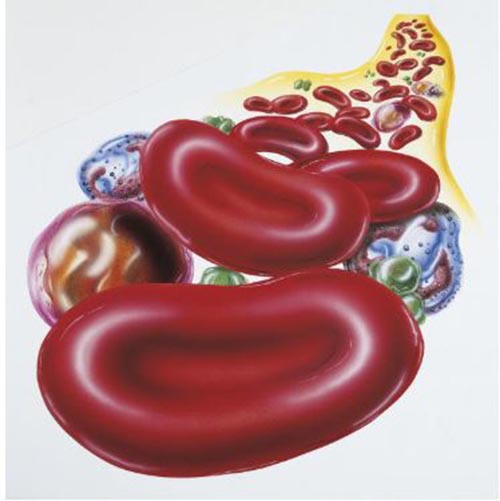
(Credit: Stock)
Scientists from VIB and KU Leuven, together with colleagues from the University of California and the Swiss Institute for Experimental Cancer Research have demonstrated that, anti-angiogenic therapy can improve immune boosting treatments.
The successful combination of these two therapies results in the growth of specialized vessels that deliver cancer-fighting immune cells to the tumor, potentially leading to more effective treatments and longer survival periods. The results of the study are published in the peer-reviewed academic journal Science Translational Medicine.
Sustained angiogenesis, the growth of new blood vessels, and the suppression of the immune system are hallmarks of cancer, with an increasing amount of evidence demonstrating that these two activities are interrelated. Therapies that prevent tumor blood vessel growth are often used in clinics to fight cancer – but they are only effective in a particular subset of patients. Similarly, the recent successes to directly stimulate the immune system with inhibitors of negative immune checkpoint regulators – such as antibodies against programmed cell death protein 1 (PD-1) or its ligand PD-1 – has led to many clinical trials.
However, only a minority of treated patients have responded to these immunotherapies, emphasizing the need to identify strategies that will increase response rates in patients. Dr. Elizabeth Allen and colleagues from the group of Prof. Dr. Gabriele Bergers at the VIB-KU Leuven Center for Cancer Biology provide evidence that anti-PD-L1 therapy can sensitize and prolong efficacy of anti-angiogenic therapy, and conversely, anti-angiogenic therapy can improve anti-PD-L1 treatment specifically when intratumoral HEVs are generated that facilitate enhanced whire cell infiltration, activity and tumor cell destruction.
Blood vessels help regulate immunity
To avoid being targeted by their hosts’ immune systems, tumors maintain an immunosuppressive environment by manipulating the characteristics of the immune and vascular system. Increased blood supply and decreased immune activity are necessary for malignant cells to multiply.
Prof. Dr. Gabriele Bergers (VIB-KU Leuven): “The network of blood vessels itself is an important regulator of immunity because it controls white blood cell traffic. By preventing the infiltration of white blood cells, the cancer is able to evade the host’s immune system.”
A counterintuitive outcome
Interestingly, the team showed that combining anti-angiogenic and immune-stimulating therapies in the treatment of tumors in mouse models resulted in better therapeutic outcomes by providing white blood cell gates through which they can infiltrate cancers.
Dr. Elizabeth Allen (VIB-KU Leuven) sayd, “It was interesting to observe that this combination of immune system-activating and anti-angiogenic antibodies causes a positive feedback loop. The result is the growth of specific blood vessels that deliver cancer-fighting immune cells into the tumor. These high endothelial venules (HEVs) are normally found in lymphoid organs such as lymph nodes, where they help transport white blood cells. For the first time, we showed that the growth of HEVs can be therapeutically induced in tumors.”
Describing the process
The results of the study indicate that the two therapies stimulated significant growth of HEVs in pancreatic and mammary tumors, leading to malignant cell death and tumor shrinkage. The next step in this research involves investigating how intratumoral HEVs are formed and maintained.
Prof. Gabriele Bergers (VIB-KU Leuven) says, “Understanding the underlying mechanisms of the process will contribute to the overarching goal of developing new therapeutic approaches to boosting the immune system in tumors.”
